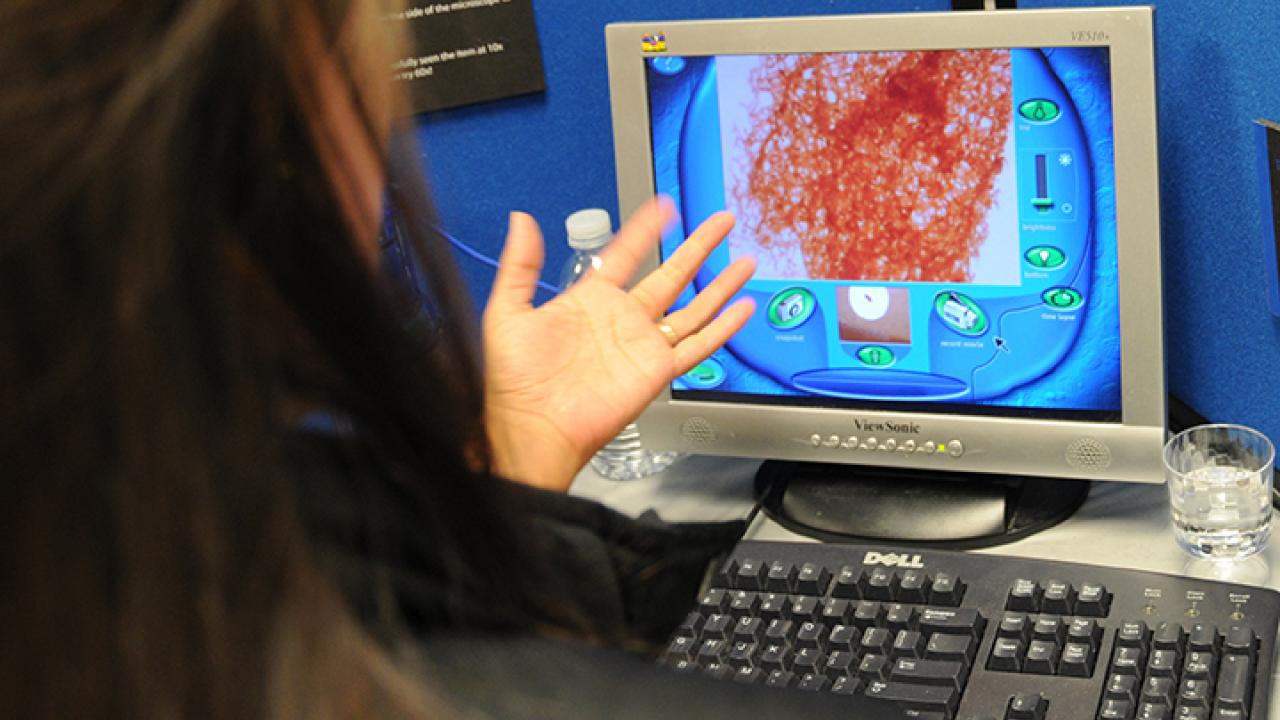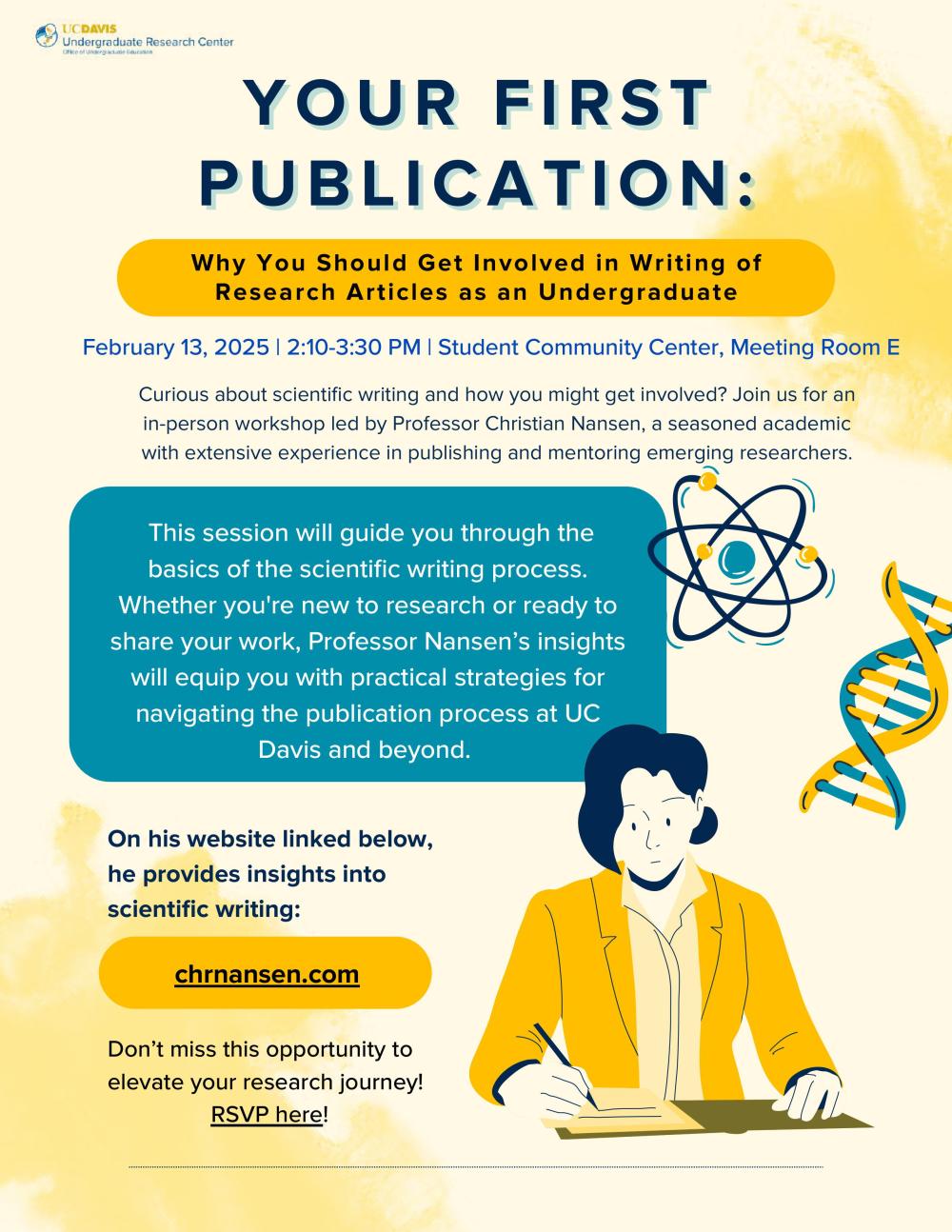
Your First Publication: Workshop for Undergraduates on How to Write a Research Paper
Entomology Professor Christian Nansen to Teach Workshop

UC Davis undergraduate students seeking information on how to write their first research publication--or to learn more about research writing in general--are invited to register for a free workshop to take place Thursday, Feb. 13 in the UC Davis Student Community Center.
UC Davis entomology professor Christian Nansen will teach the workshop, titled “Your First Publication: Why You Should Get Involved in Writing of Research Articles as an Undergraduate,” from 2:10 to 3:30 p.m. in Meeting Room E.
It’s an opportunity for undergraduates to elevate their research journey. They can RSVP here.
Nansen, an agricultural entomologist, provides scientific-writing insights on his website.
“Let me start by saying that my own program would not rank very high on all the points made below, and my objective with this page is not to promote my own program,” he writes. “Moreover, this is an attempt to give prospective undergraduate and/or graduate students something to think about when choosing where to do research, what to think about when choosing supervisor, and at what university to do the research.“

Nansen offers several points, including “A graduate project should be structured, so that it matches your main interests, and what you think will be your career path (at this point in time, and that may very well change). Try to identify the types of research that you enjoy --modeling, laboratory analysis, field work, interaction with growers, regulatory aspects, GIS (Geographic Information System) behavioral assays, etc. Identify 5-10 of these types and rank them--that will give you and your prospective advisor a good idea about what type of project that fits your profile. Also, rank in order: Research, Teaching, Extension, Industry collaboration- as that will also help tailoring the project to your profile."
Among the other points:
- “Compose your research project so that it has both ‘safe’ and more ‘risky’ components. You want to be absolutely sure’ that you have enough data when you finish, but you should also be brave enough to include some experiments that would give you wonderful data.... if you succeed.”
- “Your future career will not only depend upon the quality of your research project, and many graduate students realize that all too late. It is extremely important to create a vast network of contacts while you are in grad school. Attend conferences and scientific meetings, visit other labs/research groups, meet industry representatives, get introduced to members of growers associations--so it is very important to choose a laboratory with active collaboration with: other departments, universities, companies, and associations. One day you may need a letter of recommendation or your job application is being evaluated by people you have already met...” See more
Nansen, who joined the UC Davis Department of Entomology and Nematology in 2014, specializes in applied insect ecology, integrated pest management and remote sensing. His research interests also include host plant stress detection, host selection by arthropods, pesticide performance, and use of reflectance-based imaging in a wide range of research applications.
On his website, he also notes: “We are seeking to develop food production practices that reduce reliance on pesticides in ways that are both environmentally sound and economically feasible.”
Nansen, who holds a doctorate in zoology from the University of Copenhagen, Denmark, has held faculty positions at Texas A&M, Texas Tech, and most recently at the University of Western Australia.
